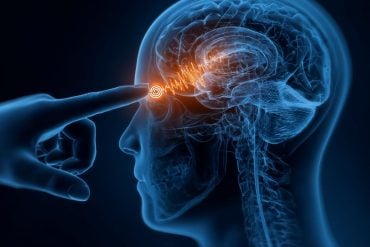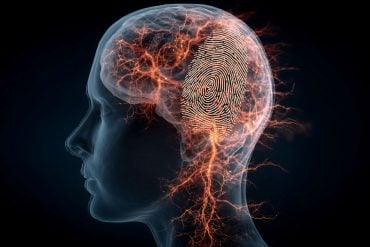Summary: A recent study reveals that motor delays and low muscle tone are strong indicators of an underlying genetic diagnosis in children with neurodevelopmental disorders. Researchers reviewed patient records to identify early signs, finding that 75% of children with motor delays had genetic diagnoses. Early identification can enable families to seek genetic testing, potentially offering targeted treatments or monitoring for related medical issues.
This research highlights key clinical features like motor delay, low muscle tone, and delayed walking, which could guide future testing guidelines. Knowing these signs can empower families and clinicians to pursue genetic evaluations early on, reducing the time needed to diagnose and tailor care. The findings aim to streamline care with personalized insights from genetic evaluations.
Key Facts:
- 75% of children with motor delays in the study had a genetic diagnosis.
- Children with low muscle tone and delayed walking also showed higher genetic diagnosis rates.
- Early genetic diagnosis can aid in managing coexisting medical concerns, like heart issues or seizure risks.
Source: UCLA
In a new study, UCLA Health researchers have found that motor delay and low muscle tone were common signs of an underlying genetic diagnosis in children with neurodevelopment disorders.
Given the limited existing data on the early neurodevelopmental symptoms that predict a positive genetic diagnosis, the study authors aimed to research which factors in this subset of children indicated the need of a genetic test.

“With genetic testing, a diagnostic result can have benefits on medical care, but we don’t have established clinical guidelines on the early neurodevelopmental signs that classify who gets genetic testing or not”, said Dr. Julian Martinez, study senior co-author and medical geneticist at UCLA Health.
Dr. Martinez said knowing the early neurodevelopment symptoms that signal for a genetic diagnosis can benefit both a patient’s family and doctor: a patient’s family can advocate to see a geneticist, and a geneticist provides testing that can potentially give a positive genetic diagnosis, which can help with monitoring the onset of other medical concerns or provide an opportunity to start a treatment for the specific genetic condition, if one is available.
The study, published in Genetics in Medicine, reviewed medical charts from 316 patients seen at the UCLA Care And Research In NeuroGenetics (CARING) Clinic from 2014-2019. The CARING clinic is a multidisciplinary hub where a psychiatrist, geneticist, neurologist, and psychologist collaborate to treat patients with neurodevelopmental disorders.
The patients were categorized based on their genetic testing results, then the researchers documented clinical factors that differentiated patients with and without a genetic diagnosis.
The researchers found that, overall, patients with a genetic diagnosis were more likely to be female and receive early intervention services for a history of motor delay, low muscle tone, and/or congenital heart disease.
Of the study group, 75% of patients with motor delay had a genetic diagnosis, and in patients without motor delay, low muscle tone and age of walking were other indicators for a genetic diagnosis.
“For many years, the genetics field has diligently worked on figuring out who are the patients that would benefit the most from genetic testing,” Martinez said.
“So, it’s helpful to know that a delay in motor skills yields a very high likelihood of a genetic diagnosis.”
“This study takes us a step closer to developing evidence-based guidelines for genetic testing in neurodevelopmental disorders,” said Dr. Aaron Besterman, study senior author and former UCLA Health Postdoctoral Researcher who’s now a health sciences associate clinical professor at the UCSD Department of Psychiatry.
“By identifying key clinical features, we can help ensure that the children most likely to benefit from genetic testing receive it promptly.”
Dr. Martinez said that an early genetic diagnosis can lead to managing or anticipating a medical co-occurrence such as congenital heart disease, a psychiatric illness, or information on a higher likelihood of experiencing seizures.
He also said while controversial, some families prefer to be informed about their genes for family planning.
“With the use of genetic evaluations and precision medicine, the intent is to shorten the diagnostic odyssey – meaning the long period of time it takes for a patient to receive a diagnosis — so that we can nurture the patient and provide the personalized care that is best specifically for the patient with a unique diagnosis and not necessarily treat them like anybody else.”
About this genetics and neurodevelopment research news
Author: Kelsie Sandoval
Source: UCLA
Contact: Kelsie Sandoval – UCLA
Image: The image is credited to Neuroscience News
Original Research: Open access.
“Clinical factors associated with genetic diagnosis in suspected neurogenetic disorders in a tertiary care clinic” by Julian Martinez et al. Genetics in Medicine
Abstract
Clinical factors associated with genetic diagnosis in suspected neurogenetic disorders in a tertiary care clinic
Purpose
This study aimed to identify phenotypic factors associated with genetic diagnoses in patients with neurodevelopmental disorders and generate a decision tree to assist clinicians in identifying patients most likely to receive a positive result on genetic testing.
Methods
We retrospectively reviewed the charts of 316 patients evaluated in a neurodevelopmental clinic between 2014 and 2019. Patients were categorized based on genetic test results. Analyses were performed to identify variables that discriminate between patients with and without a genetic diagnosis.
Results
Patients with a genetic diagnosis were more likely to be female and have a history of motor delay, hypotonia, congenital heart disease, and early intervention. Classification and regression tree analysis revealed that 75% of patients with motor delay had a genetic diagnosis. In patients without motor delay, hypotonia, age of walking, and age at initial evaluation were important indicators of a genetic diagnosis.
Conclusion
Our findings suggest that motor delay and hypotonia are associated with genetic diagnoses in children with neurodevelopmental disorders. The decision tree highlights patient subsets at greater risk and suggests possible phenotypic screens. Future studies could develop validated decision trees based on phenotypic data to assist clinicians in stratifying patients for genetic testing.






